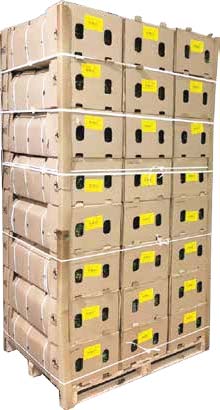
The Cabinet Secretary for Agriculture, Mutahi Kagwe, officially announced the removal of taxes on packaging materials for agricultural products, a strategic move aimed at boosting Kenya’s export competitiveness. The announcement was made during the North America Tea Conference held in South Carolina. This policy shift is expected to make packaging in Kenya more affordable and attractive, encouraging more investors to package locally and thereby add value within the country.
Previously, a 25 percent excise duty had been imposed on key packaging materials such as kraft liner and kraft paper through the 2025 Finance Bill. This tax significantly increased production costs across agriculture exports, for instance, the cost of packaging a 10kg avocado box rose by Ksh26 to Ksh182, and the price of a flower box increased by Ksh50 to Ksh247. Such hikes in packaging costs had alarmed exporters and manufacturers, warning that the elevated costs threatened Kenya’s global competitiveness by raising retail prices on vital exports like tea, coffee, avocados, and horticultural products. Packaging typically accounts for 30 to 40 percent of the retail prices in Kenya’s export-oriented agricultural sector, making these materials essential for maintaining cost-effective trade.

With the excise duty removed, exporters can now package their products at the source according to international market standards, which enhances freshness, traceability, and overall product value.
Kagwe underscored that this measure will eliminate unnecessary costs, improve competitiveness, and strengthen Kenya’s position in the global market.
The policy is not only expected to raise returns to farmers but also to benefit the broader business community by making Kenyan products more appealing directly on international shelves.
The removal of packaging taxes represents a critical step in reducing post-production costs, boosting local value addition, and enhancing the incomes of smallholder farmers and exporters alike, while safeguarding Kenya’s export markets from pricing pressures that could erode competitiveness. This policy reversal sends a strong signal of government support aimed at deepening the packaging value chain within Kenya and consolidating the country’s status as a leading global exporter.
This development comes after widespread industry concerns that the earlier tax would increase operational costs, threaten livelihoods in the floriculture and horticulture sectors, and risk losses in key export markets.
The government’s new direction now promises a revitalization of export packaging strategies aligned with international quality requirements and market demands, ultimately benefiting Kenya’s agricultural value chains and the national economy.

